Items that can be helpful in supporting children and young people with a range of additional needs.
![James wearing ear defenders. / Image via [link]The Additional Needs Blogfather[/link].](https://cms.evangelicalfocus.com/upload/imagenes/645df89225baf_eardefend940.jpg) James wearing ear defenders. / Image via [link]The Additional Needs Blogfather[/link].
James wearing ear defenders. / Image via [link]The Additional Needs Blogfather[/link].
I thought it might be helpful to provide a ‘kit list’ of items that can be helpful in supporting children and young people with a range of additional needs.
Start by asking…
While the items in my kit list will be generally helpful in supporting children and young people with a range of additional needs, and indeed sometimes in children’s and youth work generally, we must always remember the importance of asking children and young people, and their families, what might be helpful first.
It is important that we do inclusion ‘with’ people and not ‘unto’ them… as the helpful phrase goes “Nothing about us without us”.
A great way to start with this, and to unlock areas for further conversation, is to use ‘one-page profiles’. These sheets, freely available from SheffKids in a wide variety of styles, help us to learn about children and young people from their own words.
Including three key response boxes for ‘What people like and admire about me’ (a narrative changer), ‘What makes me happy’ (useful to help them engage and learn), and ‘How I want to be supported’ (useful tips to guide us), these sheets are great at giving us useful information to help us understand and support children and young people better.
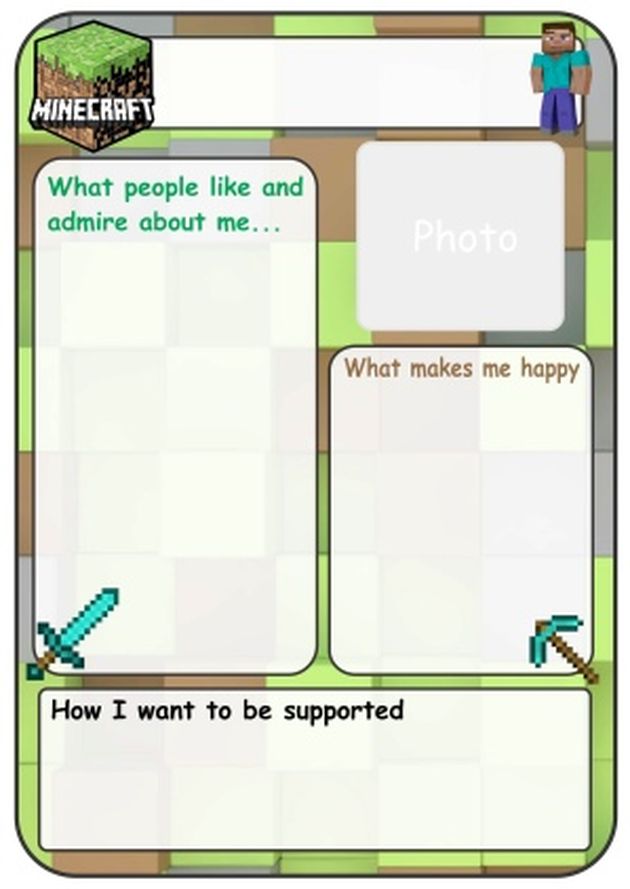
Ear defenders…
Ear defenders can be helpful in a wide range of contexts, with lots of children and young people with additional needs having a sensory sensitivity to loud noise, echoing or resonating noise, or just the overwhelming nature of too must audible input being heard at the same time.
A few pairs of ear defenders, available when needed, can be a game changer for a child or young person with additional needs, enabling them to remain in a church service of children’s/youth group setting when otherwise it would have been too difficult.
Fiddles/fidget box…
We are all sensory creatures, including the children and young people with additional needs that we serve. Sometimes our senses need ‘waking up’ when we are finding it hard to focus and concentrate, other times our senses need ‘calming down’ if we are becoming overwhelmed.
A fiddles/fidget box can help children and young people with additional needs meet these sensory needs.
It is, however, important that we provide fiddles/fidgets to children and young people that meet their need and don’t increase them.
A child or young person who is becoming overwhelmed needs something calming to fidget with, such as a soft toy, some play doh, a glitter wand; whereas a child or young person who is struggling to focus and concentrate needs something to stimulate their senses, such as a light-up ball, a fidget cube, or a finger spinner.
Make fiddles/fidgets available to everyone… yes, it will be a distraction the first time you use them as they are new and interesting, but over time the children and young people get used to them being there, the novelty value wears off, and they can be used as intended.
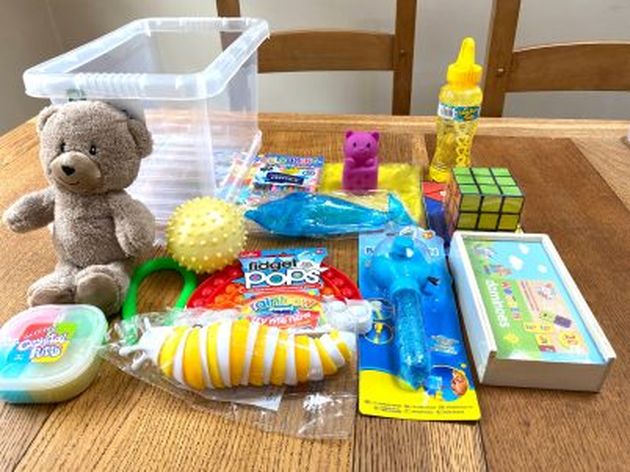
Visual timetable…
All children and young people find having access to a visual timetable, showing them using symbols or photo’s what is happening now, next, later, and sometimes more, to be helpful in reducing stress and anxiety, and this is particularly helpful for children and young people with additional needs.
The uncertainty of not knowing what is going on can build up to the point where a child or young person can become overwhelmed and this can be easily avoided by equipping them with a simple visual timetable to help them understand what is happening.
If a child or young person with additional needs is using a visual timetable at home or at school, use the same style, symbols etc. at church so that there is continuity and familiarity.
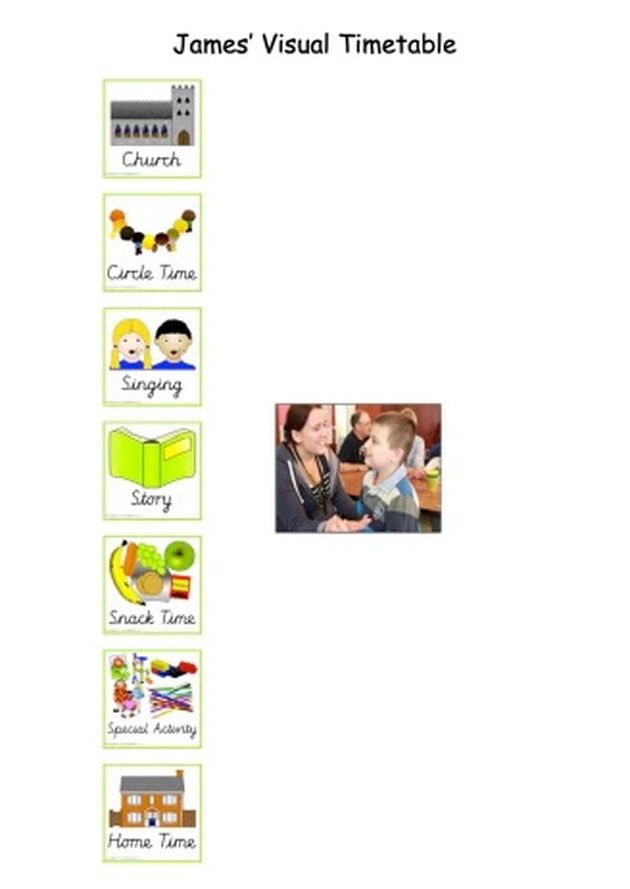
Sensory safe space…
Sometimes, even with all of our best efforts to help, a child or young person with additional needs might need some time in a sensory safe space where they can shut out all sensory input.
This could be a blackout tent, equipped with some beanbags and blankets, providing children and young people with a place that they can use to self-regulate their senses when needed. Weighted blankets can sometimes help here too.
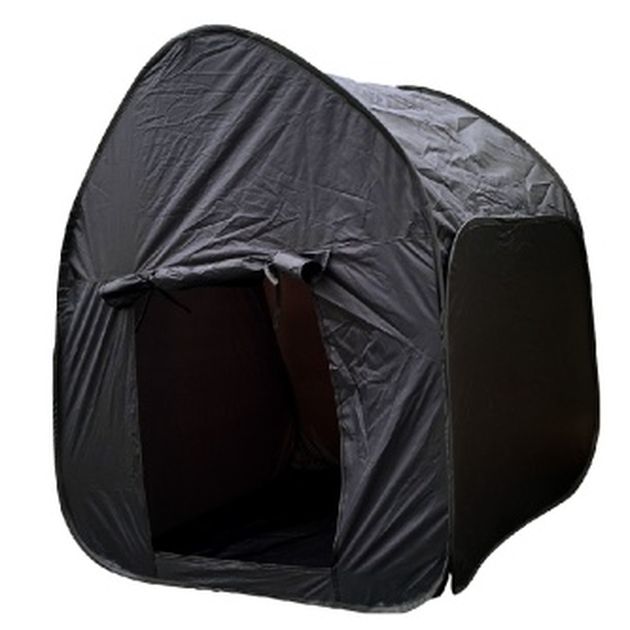
Graphic Bibles…
Providing children and young people with additional needs with Bible stories in a format that they can access, understand, and that connects with what they are interested in can be a great way of helping them to remain engaged in what is being explored together.
Whether it’s ‘The Unofficial Bible for Minecrafters’, the ‘The Brick Bible’ (Lego), The Action Bible, The Hero Bible, or one of many more, find out what they love (the one-page profiles mentioned earlier will help here) and equip them with access to the Bible stories in a format that works for them. (Note: some of these graphic Bibles can be quite ‘graphic’ in their content so have a look at them first!)
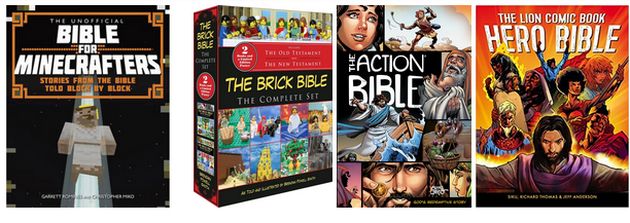
And finally, assess the space you use…
While thinking about what ‘kit list’ items that might be helpful in supporting children and young people with additional needs, it is also important for us to make sure the space we are using is helpful and not hindering.
Have a good look at the space you use… is it cluttered, with stuff everywhere and pictures or information sheets stuck on every wall? How easy is it to move around the space? Does a lack of sound absorbent surfaces make it echo? Are the lights too bright (or if they are fluorescent tubes, do they ‘buzz’ and ‘flicker’?)
Sometimes we have to start with fixing our space first, otherwise all the ‘kit list’ ideas above will be battling against the overwhelming nature of clutter, confusion, and sensory overload.
And while we are on, we could have a think about what we do personally to help or hinder a child or young person with additional needs… try to avoid bright, patterned, clothing, strong scent, jewellery, anything that might be a sensory trigger.
The kit list above isn’t comprehensive, there are loads more ideas that will be helpful in making your space and your session work for children and young people with additional needs.
Mark Arnold, Director of Additional Needs Ministry at Urban Saints. Arnold blogs at The Additional Needs Blogfather. This article was re-published with permission.

Las opiniones vertidas por nuestros colaboradores se realizan a nivel personal, pudiendo coincidir o no con la postura de la dirección de Protestante Digital.
Si quieres comentar o